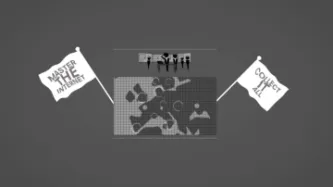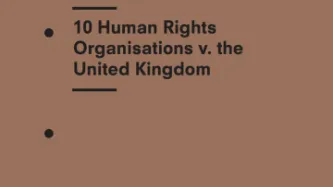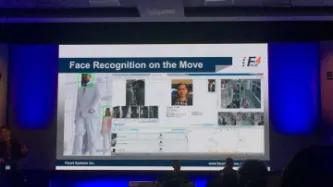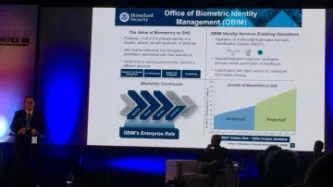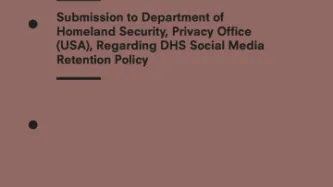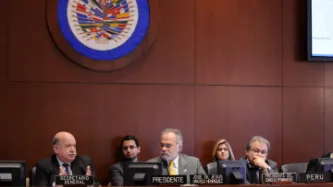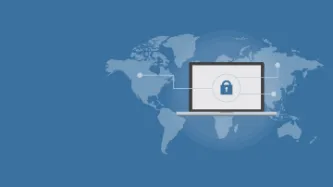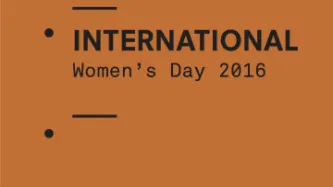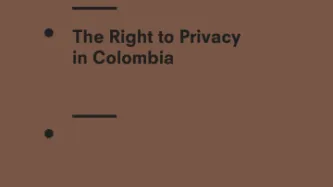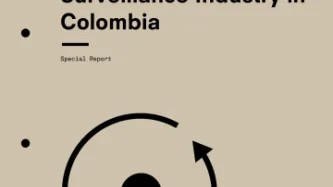Search
Content type: News & Analysis
7 July 2016
It has been said is that we pay for free services with our personal data. Now, the Privacy Shield exponentially expands this truth and we are paying for the cost of U.S. political dysfunction combined with EU complacency with our privacy. More than four months after the first EU-US Privacy Shield was published on 29 February 2016, a new version has been leaked. Remarkably, it is expected to be adopted.
Four months, two opinions by group of EU data protection…
Content type: Press release
The release of a new report by Privacy International exposes Colombia's intelligence agencies' previously unknown history of developing communications surveillance capabilities outside of lawful authority.
The report “Shadow State: Surveillance law and order in Colombia” reveals, via previously unreleased documents, the Colombian police agencies' and intelligence services' long history developing surveillance systems. Rather than building a well-regulated system of surveillance after Colombia…
Content type: News & Analysis
The elections in our midst here, there, and everywhere are increasingly resulting in governments who introduce policies that result in leaps backwards for dignity, equality, civil liberties, and the rule of law. Whether it is Poland or the Philippines, governments are overriding essential safeguards.
This week Britain’s proposed surveillance legislation took another step toward normalising mass surveillance. The United States of America has long promoted mass surveillance and maintains its…
Content type: News & Analysis
For further information on timeline and case history, read this briefing.
Arguments
The argument were based on the written submissions of the parties. The oral statements summarised key points in these submissions.
The submissions can be found on PI’s website under Legal Action. In terms of today’s proceedings (these are now available through webcast)
Counsel for the UK Government, James Eadie QC started off proceedings, his opening arguments were: 1) The issues are of…
Content type: News & Analysis
From unlocking a smartphone or getting through an airport, the use of an iris, fingerprint, or your face for identity verification is already widespread, and the market for it is set to rocket. While the technology is not new, its capability and uses are. As people, biometrics offers us much, but risks ultimately only serve data-hungry industries and government agencies: in the name of efficiency and security, it has the potential to bring chaos and vulnerability.
Obtaining reliable…
Content type: News & Analysis
The United States Department of Homeland Security (DHS) has contracted one of the world’s largest arms companies to manage a huge expansion of its biometric surveillance programme.
According to a presentation seen by Privacy International, the new system, known as Homeland Advanced Recognition Technology (HART), will scoop up a whopping 180 million new biometric transactions per year by 2022.
It will replace the Automated Biometric Identification System (IDENT), which currently stores…
Content type: Advocacy
Privacy International wishes to raise serious concerns regarding the proposal to expand immigration records to include social media handles, associated identifiable information and search results. Specifically, in relation to the current request for comments Docket Number DHS 2017 0038, we object to the Department for Homeland Security proposal to update record source categories to include “publicly available information obtained from the internet”, “commercial data providers” and from “…
Content type: Advocacy
Privacy International has today submitted comments to a U.S. government consultation on whether the US Department of Homeland Security (DHS) should keep the social media details of individuals travelling to the US in so-called “Alien Files” documenting all immigrants.
We’ve urged that they don’t, and that they review and stop all similar social media surveillance by the DHS.
The systematic surveillance of social media is an increasingly dangerous trend …
Content type: News & Analysis
This blog was written by Fundación Karisma, a member of the Privacy International Network. It does not necessarily reflect the views or position of Privacy International.
The Colombian General Prosecutor said recently that the blocking of IMEI is not working. He is talking about a registry created in 2011 that aims to reduce cellphone theft by blocking reportedly stolen phones of Colombian networks.
Fundación Karisma has been following this program and now, after six years…
Content type: Press release
This week in Geneva, the UN Human Rights Committee will examine Colombia’s compliance with the International Covenant on Civil and Political Rights (ICCPR). This review, by a body of independent experts charged with monitoring compliance with the ICCPR, comes just weeks after the peace deal between President Juan Manuel Santos and Farc leader Timoleon Jimenez was rejected by voters and months after it was revealed that an investigative journalist was put under surveillance by the Colombian…
Content type: News & Analysis
On 23 May 2016, the Inter-American Commission on Human Rights (IACHR) reported that severe financial problems have forced it to cancel its July and October sessions in 2016, and all trips planned for this year and, if new funding cannot be secured by 15 June 2016, will lead to the non-renewal of the contracts of 40 per cent of its staff.
Privacy International has joined PEN International, writers and other international members of the International Freedom of Expression Exchange…
Content type: Long Read
Written by: Maria del Pilar Saenz
With a raft of recent scandals involving proven and possible abuses of surveillance systems by state institutions, there is a clear need to generate policy and practice in Colombia that promotes respect for human rights. It is necessary to keep this in mind as an emerging public policy discussion on cybersecurity led by CONPES (The National Council for Economic and Social Policy) begins in Colombia. This series of reforms will serve as the policy basis…
Content type: News & Analysis
Should the European Union agree to legitimise trade with a country that refuses to adhere to European legal standards? This is the fundamental question that will be addressed at tomorrow’s meeting among European privacy regulators when they publish their opinion on the data-sharing agreement known as the ‘Privacy Shield’, the replacement to the failed ‘Safe Harbour’ agreement.
Background
Many of the world’s largest companies, such as Google and Facebook, store their customers’ data in…
Content type: Advocacy
Introduction
On 29 February 2016, the European Commission and the US government released the details of the proposed EU-U.S. “Privacy Shield”. The “Privacy Shield” replaces the now defunct so-called “Safe Harbor”.
The Privacy Shield is in fact a significant number of documents from various parts of the U.S. administration, which merely outline the existing, weak U.S. safeguards applicable to personal data of EU citizens. These documents are meant to serve as the basis for an “adequacy”…
Content type: Report
The right to privacy is a qualified right. Gender is not and cannot be its qualification.
For this year’s International Women’s Day, the Privacy International Network is sharing some of its successes as well as the challenges and opportunities we face in at the intersection of gender issues and the right to privacy. Click here to see this feature.
Interferences and violations of the right to privacy, as described in the UN Declaration of Human Rights, affect society as a whole. However,…
Content type: News & Analysis
A new illegal spying scandal in Colombia involving the National Police has brought about the resignation of the Chief of the National Police, set off an investigation by the country’s Inspector General and brought the issue of illegal surveillance by Colombian authorities back into the national discussion.
With another institution engulfed in a spying scandal, it begs the question: just how many more of these can Colombia take before something finally changes?
Privacy International’s report…
Content type: Advocacy
Article 17 of the International Covenant on Civil and Political Rights (ICCPR) provides for the right of every person to be protected against arbitrary or unlawful interference with his privacy, family, home or correspondence as well as against unlawful attacks on his honour or reputation. Any interference with the right to privacy can only be justified if it is in accordance with the law, has a legitimate objective and is conducted in a way that is necessary and proportionate. Surveillance…
Content type: News & Analysis
Photo: Flickr/Elvert Barnes. Some rights reserved.
In the wider civil society space, the opportunities for travel come thick and fast. From the multi-stakeholder perspective, the Internet Governance Forum will be held during November in João Pessoa, Brazil. There is the Stockholm Internet Forum in, naturally, Stockholm. In freedom of expression there is the International Freedom of Expression Exchange Strategy Conference in Trinidad & Tobago, while End…
Content type: Press release
Privacy International's new report exposes the companies that have built the Colombian Government's controversial and highly invasive surveillance systems. The report “Demand/Supply: Exposing the Surveillance Industry in Colombia” shows the extensive dealings that companies from Israel, the UK, the USA, Finland, and New Zealand, among other countries, have had in supporting Colombian government agencies in purchasing surveillance equipment. Many of the company's customers were agencies that did…
Content type: News & Analysis
Over a dozen international companies are supplying powerful communications surveillance technology in Colombia, according to a Privacy International investigation released today featuring original documentation. Over the past few decades, companies primarily from Israel, the US, and the UK have worked with Colombian partners to expand the Government's surveillance capacities. This is despite evidence that the Government is undertaking unlawful surveillance of Colombians.
The…
Content type: Report
Over a dozen international companies are supplying powerful communications surveillance technology in Colombia. Privacy International examines the actors across the world involved in facilitating state surveillance.The report is available in English and Spanish.
Content type: Report
For nearly two decades, the Colombian government has been expanding its capacity to spy on the private communications of its citizens. Privacy International's investigation reveals the state of Colombia's overlapping, unchecked systems of surveillance, including mass surveillance, that are vulnerable to abuse.
See the report in English and Spanish.
Content type: News & Analysis
“We always assume we are being watched. It is part of our understanding,” explained Father Alberto. The clergyman knows what it's like to live under surveillance. Father Alberto is Executive Secretary of the Inter-ecclesiastical Commission for Justice and Peace in Colombia, which supports displaced and conflict-affected communities in their struggle for justice. The CIJP also works in the restive Urabá region, where they document and litigate on the links between neo-paramilitary groups,…
Content type: Press release
The release of a new report by Privacy International exposes Colombia's intelligence agencies' previously unknown history of developing communications surveillance capabilities outside of lawful authority.
The report “Shadow State: Surveillance law and order in Colombia” reveals, via previously unreleased documents, the Colombian police agencies' and intelligence services' long history developing surveillance systems. Rather than building a well-regulated system of surveillance after Colombia…
Content type: News & Analysis
Here are eight things we have learned from this week's hack of some 400GB of internal company material and correspondence from Italian surveillance company Hacking Team.
The Citizen Lab was right
The Citizen Lab, who in 2014 identified some 21 countries that are potential customers of Hacking Team, were right about all of them. A 2015 report stated that there was likely to be more. In fact, at least 45 countries are purchasers of Hacking Team's…
Content type: Press release
Governments must accept they have lost the debate over the legitimacy of mass surveillance and reform their oversight of intelligence gathering, Privacy International and Amnesty International said today in a briefing published two years after Edward Snowden blew the lid on US and UK intelligence agencies’ international spying network.
“The balance of power is beginning to shift,” said Edward Snowden in an article published today in newspapers around the world. “With each court victory,…
Content type: News & Analysis
Privacy International, Bytes for All and other human rights groups are celebrating a major victory against the Five Eyes today as the UK surveillance tribunal rules that GCHQ acted unlawfully in accessing millions of private communications collected by the NSA up until December 2014.
Today’s judgement represents a monumental leap forward in efforts to make intelligence agencies such as GCHQ and NSA accountable to the millions of individuals whose privacy they have violated.
The…
Content type: News & Analysis
In a recent trip to Colombia, Privacy International learned that the Colombian mobile phone network does not use any form of encryption. In this sense, Colombian communications are stuck in the 1990s, where cryptography was not yet widespread, and was still tightly controlled by governments who feared its spread could threaten their capabilities to conduct surveillance.
The issue of encryption on mobile phones though is not unique to Colombia. The Director of the FBI has been on a media blitz…
Content type: News & Analysis
This year, an advanced surveillance system called the "Platform for Unified Monitoring and Analysis" will come online in Colombia. Frustrated with the the previous system, Esperanza, which only monitored telecommunications activity, the Colombian authorities turned to PUMA (Plataforma Única de Monitoreo y Análisis), a system that will allow them to monitor both telecommunications traffic and IP traffic in one source. The system, now based on Police property in Western Bogota, will now be…

